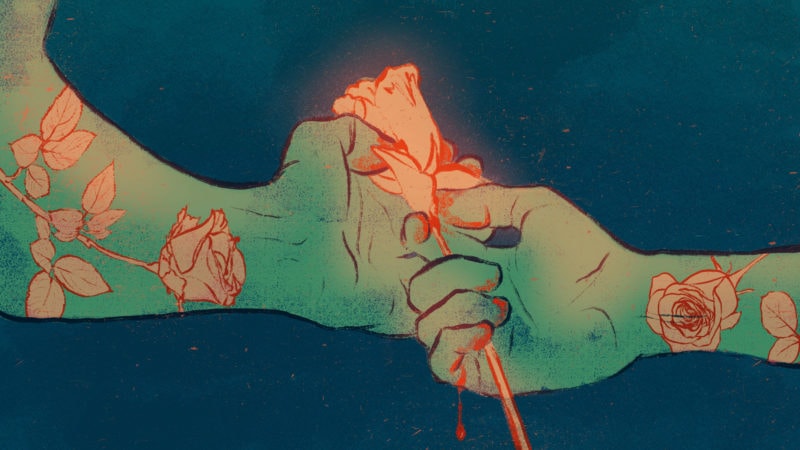Listen:
after the drawings of Martín Ramírez
I
There’s a man who sits at his desk this evening,
bearing witness to the end of days. The more ink
he uses, the less breath left in the world. He writes
the word bees and the buzzing stops, all hives
explode into dust, and no one remembers honey.
Not even the man who sits at his desk, looking
down at the word as if he had just invented it.
Bees, he mutters. The awkward sound sputters out
of his mouth and plummets because it lacks wings.
The man smudges the page. The word, singed
into illegibility. He tries to recall its circular shapes,
retrace its final journey, but it’s much too late
to bring back to the light what has been erased.
II
There’s a man who sits at his desk this evening,
wondering what to do with this new word, song.
It is mute like the sparrows outside his window.
It’s stubborn as the kettle that no longer whistles
no matter how much the water boils. The man
at the desk rolls the word around with his tongue
but it refuses to make sound, inert as a bell.
What now? Spit it out? One more tragic tale
to shame the world? Already the flutes turned
back into wands and the saxophone into a horn
that will sleep under glass in a museum. Sigh.
The man tries to awaken the word one last time
by biting into it. No resurrecting the demised.
III
There’s a man who sits at his desk this evening,
sick with worry. The plows have stopped plowing
farmlands stretched at the foot of the mountain.
The entire range deflates with the weight of sun.
The man regrets writing down the word window.
He lights a candle, cursed to continue in shadow.
Everything this square on the wall once shared
has been withdrawn. The clouds no longer there,
nor the sparks of orange butterflies now trapped
midflight as if wedged unkindly into stained glass.
He barely hears the cows and the coming storm,
so he tiptoes across the room, creaks open the door.
Nothing enters. He will have no visitors anymore.
IV
There’s a man who sits at his desk this evening,
watching the word flower wither to nothing.
It is not yet winter, but every garden retreats.
In his, ink blots shrink down to poppy seeds
and the rose on the desk flattens its flirtatious eye
into a line, sharp as a needle. The man extends
his hand and pricks his thumb. A drop of blood
falls on the page but disappears before it blooms.
And then his quill, once majestic as pampas grass,
thins down into a vulgar stem of rye. Beauty is
fragile and fleeting. Frantic to reclaim it, he sketches
petal within petal within petal until the curves stretch
into parabola inside parabola—spirals of the wretched.
V
Without wheel there’s no escape. Without sky
there’s only the prison of this room. The man
draws a four-legged creature and a machine
slumped on parallel lines but dares not scribble
their names. Look, there’s a woman with a word
frozen on her lips. Let it remain unspoken lest
it be gone forever. Let it not be love. Let it not be
God. When the man rests his head on her dress,
she assures him that she will keep the word intact.
Weary of loss, he wills himself gone. He writes:
There’s a man who sits at his desk this evening.
There’s a man who sits at his desk.
There’s a man.
